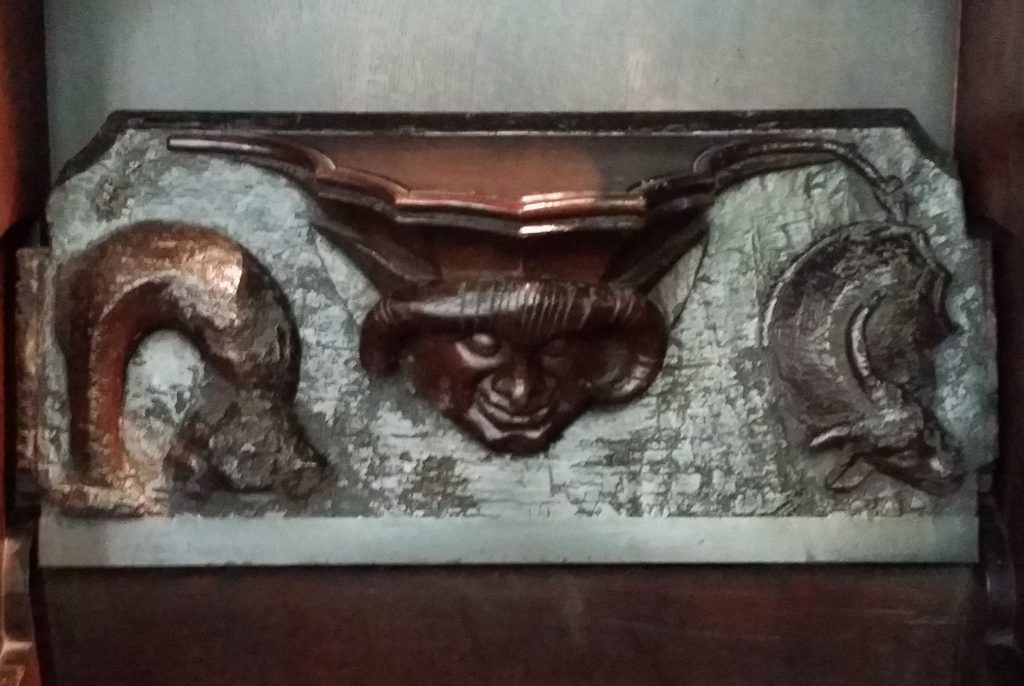
I haven’t seen children asking for ‘a penny for the Guy’ for a while. But it was part of my childhood. We would create a ‘Guy’ out of old clothes and take it into the streets to raise money. The Guy is named after Guy Fawkes, who was discovered on 5th November 1605 in a cellar under Parliament by a pile of barrels of gunpowder. He had a slow match and the plan was to blow up the King and Parliament, on the occasion of the Opening of Parliament on the 5th of November. Once the plot had been broken and the plotters hanged, drawn and quartered, the King ordered that November 5th should be commemorated throughout the Country. Bonfires were a part of the seasonal celebrations at the time, used at Halloween, but this aspect was transferred to November 5th and continues as a major British event every year.
The money we raised, we spent exclusively on ‘bangers’ loud explosive fireworks not pretty fountains, Roman candles nor rockets. The bangers just made a horrendously loud bang. One stunt we experimented with was to cycle through the streets and to put a lit banger into the handle bars, which would act as a rocket launcher! Don’t try this at home.
Meanwhile, we would collect wood for the village bonfire:
A stick and a stake
English Folk Verse (c.1870)
For King George’s sake
Will you please to give us a faggot
If you won’t give us one, we’ll steal you two
The better for we and the worse for you.

November 4th is dedicated to hunting gods such as Herne, the Horned God, Cernunnos and Pan.
Herne the Hunter first appears in Shakespeare:
There is an old tale goes, that Herne the
William Shakespeare, The Merry Wives of Windsor, Act 4, scene 4
Hunter
(sometime a keeper here in Windsor Forest)
Doth all the winter-time, at still midnight
Walk round about an oak, with great ragg’d horns;
And there he blasts the tree, and takes the cattle,
And makes milch-kine yield blood, and shakes a chain
In a most hideous and dreadful manner.
You have heard of such a spirit, and well you know
The superstitious idle-headed eld
Receiv’d, and did deliver to our age
This tale of Herne the Hunter for a truth.
But he is linked to the Forest God, the Horned One, the Green Man and the Celtic God Cernunnos. This name Cernunnos comes from karnon which means “horn” or “antler”, and may be the source of the name ‘Cerne’. (note that the Cerne Abbas Giant has just been redated from the Celtic to the Anglo-Saxon period.) Cerney and Cirencester in Gloucestershire might have similar origins for their names.
I have recently seen a brilliant staging of the Merry Wives of Windsor at the Royal Shakespeare Company in Stratford. I saw it three times and think it one of the best Shakespeare productions I have seen. The lead actor, John Hodgkinson, with whom I used to play cricket, was a fantastic Falstaff.

Ginger cake is the traditional accompaniment to a cold night watching the Fireworks. There is a good recipe in Markham’s The English Housewife of 1683. But I’m suggesting you use this recipe from the Guardian for Parkin Cake. Traditional in Yorkshire.
First published 4th November 2021, republished 4th November 2024
Discover more from And Did Those Feet
Subscribe to get the latest posts sent to your email.
